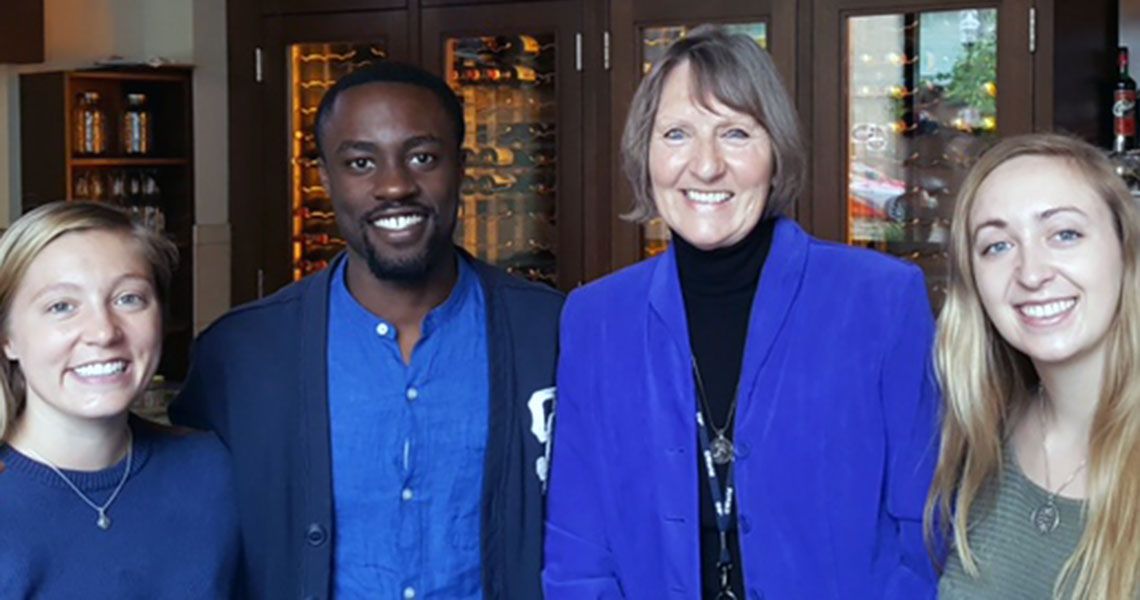Congratulations to the students in the George Washington University (GW) School of Medicine and Health Sciences (SMHS) and Milken Institute School of Public Health (Milken SPH) on the GW One Health team. The team, including second-year medical student Jeffrey Jacob and Milken SPH students Mallory Epting, Emma Sullivan, and Laura Venner, finished among the winning teams at the One Health Day competition.
The One Health Initiative aims to bring together people from many different scientific-health backgrounds to explore collaborations in the realms of human, animal, and environmental health. “Many diseases are transmitted between humans and animals, and occur in the environment. Instead of approaching health alone in one field, these different fields can work together to address health concerns,” Jacob explained.
Each team was required to include a medical student, an ecology/environmental student, a veterinary student, and one non-medical student. Venner first approached Jacob, telling him about the initiative and competition, and asking if he would fill the team’s medical student requirement. Venner’s Milken SPH classmates, Epting and Sullivan, also joined the GW One Health team. The GW team is just one of several university chapters participating in the One Health Initiative, which has a global reach.
For the competition, teams were required to host One Health Day events at their universities to raise awareness throughout their communities, and then submit write-ups detailing their events. GW One Health took the task and ran. Rather than host the single One Health Day event, the GW team organized a week-long speaker series that took place during the lunch hour each day, alternating between SMHS and Milken SPH locations. The speakers highlighted their research and related it to the One Health Initiative goals.
On the final day, the team hosted a panel discussion with four new speakers who discussed their research and tied it in to the goals of One Health. The GW One Health team also made the decision to live stream the discussion. “I think that’s what sealed it for us,” said Jacob. “We were able to reach a much larger audience that way.” By reaching that audience, the team exercised a big part of the One Health initiative: including people from varying backgrounds.
The teams were then required to submit an abstract discussing what their One Health Day events entailed for review by a committee. GW One Health was one of three teams to come out on top.
Read more information about the One Health Initiative



